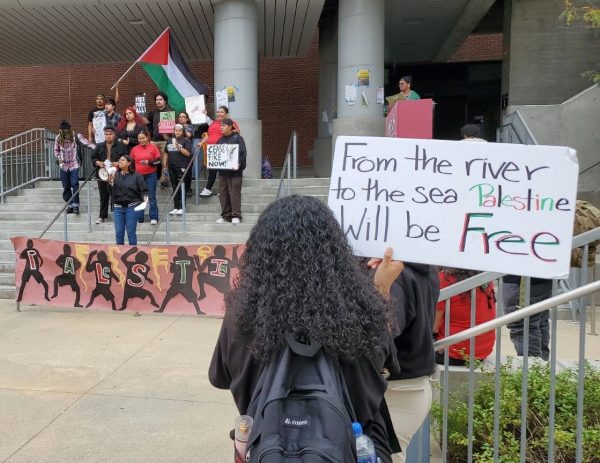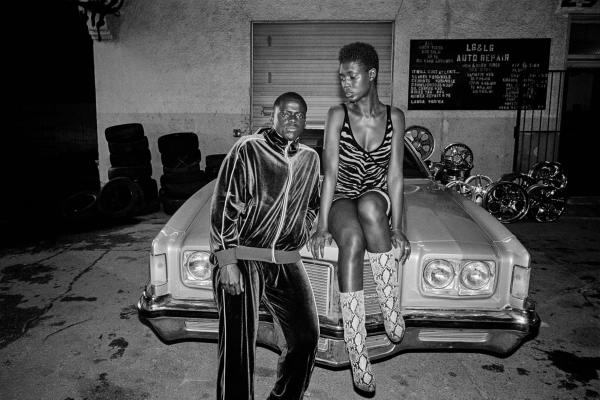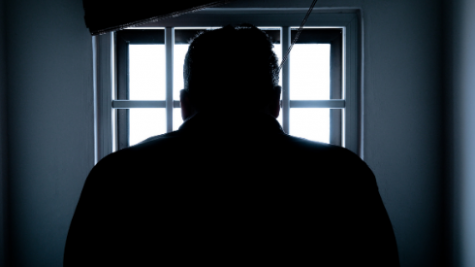Is ‘Star Spangled Banner’ a marginal anthem?
October 4, 2016
Should they have the right? Should they show more respect?
These are among the questions brought up by the recent brouhaha over the 49ers Colin Kaepernick sitting out the national anthem. Many other players have joined him since then. An entire high school football team in Seattle recently “took a knee.” And “South Park’s” first episode of the season looks at the protest’s relationship to the national anthem.
Kaepernick was roundly booed at a recent game in San Diego. He didn’t specifically mention police conduct in his initial explanation of the sit-down, but many presumed it. He quickly removed all doubt in subsequent statements. One comment, about police on paid leave while people of color are being killed, elicited a letter of complaint from Mark Halloran, president of the San Francisco Police Officer’s Association. He demands an apology from the 49ers for Kaepernick’s “ill advised statements” and “total lack of sensitivity towards police officers.”
The hurt feelings of police aside, what is more remarkable is how quickly many, especially in San Diego, reflexively equated the sit-down to a lack of respect for the military. It’s ironic that this sensitivity comes so often from people who have directed unprecedented disrespect to our current Commander-in-Chief. Kaepernick himself denies it, claiming great respect for men and women in uniform. It’s the conduct of the government he objects to. Is there a jingoistic underpinning to the national anthem?
Before “The Star-Spangled Banner” was adopted as the official national anthem by President Hoover, the de facto anthem was “Hail Columbia,” which was written in 1789 for President George Washington’s first inauguration. It was used for official state functions from the beginning of the United States until it was displaced in 1931.
In 1814 Francis Scott Key wrote a poem about a battle in the War of 1812. He called it, “Defense of Fort McHenry.” He wrote of his suspense through a night bombardment of the fort, and of his relief in the morning that it had not been lost. It was set to the music of an 18th century British men’s club song and eventually came to be called “The Star-Spangled Banner.”
It was not until 1916 that President Woodrow Wilson selected it for official state use. There is some irony that it was him. Wilson had been extremely sensitive to criticism of his push for the U.S. to enter WW I. In 1918 he signed the Sedition Act, the most serious abrogation of 1st Amendment rights in our nation’s history. Merely criticizing
government conduct earned hundreds of citizens prison sentences of 10, 15, and 20 years.
Eugene Debs, a leader in the Industrial Workers of the World (IWW), was convicted for the following utterance: “The master class has always declared the wars; the subject class has always fought the battles. The master class has had all to gain and nothing to lose, while the subject class has nothing to gain and all to lose — especially their lives.” He was sentenced to 10 years in prison for this “crime.” Nonetheless, at this time there was broad dissent against the war and government overreach under the Espionage Act and the Sedition Act. There was corresponding polarization against this dissent.
It was in this climate of nationalism and jingoistic war fervor that the effort to make the “Star-Spangled Banner” the national anthem emerged. A bill to that effect was introduced in 1918. It failed. It subsequently failed several more times. Finally, after a 1930 push by the Veterans of Foreign Wars the bill passed and was signed by
Hoover the next year.
Luckily for critics of the government, First Amendment rights have been restored and greatly broadened since WW I. Many people critical of Kaepernick’s protest have acknowledged his right to speak out. However, many police are indignant. Much of their response to this protest and Black Lives Matter has been as in Mark Halloran’s letter to the 49ers, “How dare they!” As if any such criticism of police behavior or methods is not only unacceptable — but demands apology.
The furor that the national anthem is the chosen mode of protest and that it automatically disrespects the military suggests something. Maybe we need a less martial anthem. One that wasn’t born of a small battle with a small outcome in a war that had nothing to do with the founding of the country. One that isn’t all “bombs bursting in air” and uncomfortable references to slavery. One that wasn’t pushed
forward by a president who arguably had the highest disregard for the First Amendment of any before or since.
Maybe one that wasn’t advanced primarily by veterans. (Maybe one that everyone could sing.) It would be fine to go back to the original, “Hail Columbia,” whose martial references are to our founding struggle and the blessings of liberty thus achieved. There is an appealing sweetness to “My Country ‘Tis of Thee.”
Maybe best would be an anthem about the beauty of this land and how it belongs to everyone who lives here. There is such a song — Woody Guthrie’s, “This Land is Your Land.”












